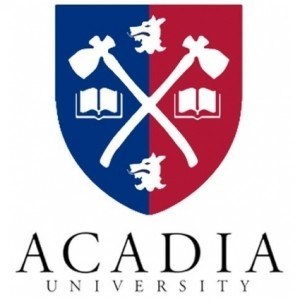Photos of university / #acadiau
The Bachelor of Science in Nutrition at Acadia University offers students a comprehensive education in the essential principles of human nutrition, health, and wellness. This program is designed to equip students with a thorough understanding of the science behind food and nutrition, preparing them for a variety of careers in healthcare, research, community health, food industry, and beyond. Throughout the degree, students explore topics such as biochemistry, physiology, community nutrition, dietetics, and food systems, gaining both theoretical knowledge and practical skills. The curriculum emphasizes evidence-based practice, critical thinking, and effective communication, enabling graduates to analyze nutritional issues, develop nutrition plans, and promote healthy lifestyles within diverse populations. Students benefit from engaging in laboratory work, research projects, and internships that provide real-world experience and foster professional development. Acadia University's supportive learning environment encourages collaboration and innovation, with faculty members who are experts in their fields, committed to student success. Graduates of the program are well-prepared to pursue further professional training in dietetics, public health, or graduate studies, or to enter the workforce in various sectors including healthcare facilities, community organizations, food companies, and government agencies. With an emphasis on ethical considerations and cultural awareness, the program aims to produce competent nutrition professionals who can address contemporary nutritional challenges and contribute positively to public health. Whether your goal is to become a registered dietitian or to engage in nutritional research, the Nutrition program at Acadia University provides a strong foundation for your career ambitions and personal growth in the dynamic and vital field of nutrition science.
The Bachelor of Science in Nutrition at Acadia University offers students a comprehensive education in the science of nutrition and its vital role in human health. This program is designed to provide students with a solid foundation in biological and physical sciences, along with specialized knowledge in nutrition principles, dietetics, and health promotion. Throughout the course of study, students will explore topics such as human anatomy and physiology, biochemistry, microbiology, and community nutrition, equipping them with a well-rounded understanding of how nutrients influence growth, development, and disease prevention.
The program emphasizes both theoretical knowledge and practical application. Students will engage in laboratory work, case studies, and internships that provide real-world experience in dietary assessment, nutritional counseling, and program planning. The curriculum also covers important areas such as food safety, public health policies, and ethical considerations in nutrition. By combining science-based coursework with opportunities for experiential learning, students will be prepared to pursue careers in various fields related to nutrition, including clinical dietetics, community health, food industry, and research.
Acadia University's Nutrition program also promotes critical thinking and research skills essential for identifying nutritional problems and implementing effective solutions. Students are encouraged to analyze current scientific literature, participate in research projects, and develop effective communication skills to advocate for healthy lifestyles and nutritional awareness. The program supports students interested in advanced studies or professional certification in dietetics and related disciplines.
Graduates of the program will be well-equipped to contribute to improving individual and community health through evidence-based nutritional guidance. They will also be prepared for graduate studies or employment in health organizations, food companies, research institutions, or healthcare facilities. With a focus on practical skills, scientific principles, and community engagement, the Nutrition program at Acadia University aims to cultivate competent and compassionate professionals dedicated to promoting well-being through nutrition.
The Bachelor of Science in Nutrition at Acadia University requires students to complete a comprehensive curriculum designed to provide a strong foundation in the scientific principles of human nutrition, biochemistry, physiology, and health. Students must fulfill a minimum credit requirement, typically around 120-130 credits, including core courses, electives, and a capstone project or thesis. The core coursework encompasses subjects such as Introduction to Nutrition, Human Anatomy and Physiology, Biochemistry, Microbiology, and Public Health Nutrition. Students are also encouraged to select elective courses that deepen their understanding of specialized areas like community nutrition, clinical nutrition, food science, and dietetics.
In addition to coursework, the program emphasizes practical experience through internships, laboratory work, and community engagement activities to ensure students develop applied skills relevant to various professional settings. To graduate, students must maintain a minimum GPA as specified by the university, often around 2.0 or higher on a 4.0 scale. The program may include prerequisites such as high school courses in biology, chemistry, and mathematics to ensure students are prepared for rigorous scientific coursework.
Students are also advised to pursue opportunities for professional development, including workshops, seminars, and networking events related to nutrition and dietetics. Upon completion of the program, graduates typically qualify for entry-level positions in healthcare, food industry, public health organizations, or further study in dietetics and related fields. Certification or licensing requirements may vary depending on the region of employment, and students are encouraged to stay informed of these regulations. The program structure emphasizes the integration of scientific knowledge with practical skills to prepare students for diverse careers in nutrition and health promotion.
The Bachelor of Science in Nutrition at Acadia University offers a variety of financing options to support students throughout their academic journey. Tuition fees for domestic students are generally around CAD 7,000 per year, while international students can expect to pay approximately CAD 20,950 annually. In addition to tuition, students should budget for ancillary fees, which include health and dental insurance, student services, and technology fees, typically amounting to several hundred dollars each year.
Financial aid is available through multiple channels, including government-sponsored student loans and grants for eligible students. Canada Student Loans and the Nova Scotia Student Assistance Program provide financial support based on merit and financial need. Acadia University also offers internal scholarships and bursaries specifically for students pursuing degrees in health sciences or nutrition, which can significantly reduce the financial burden. These scholarships are awarded based on academic achievement, leadership qualities, and community involvement.
Work-study programs are another option, allowing students to earn income on campus while gaining relevant experience in health or nutrition-related fields. Part-time employment opportunities are often available within university facilities or partner organizations, enabling students to finance their studies while enhancing their resumes.
Additionally, many students pursue externally funded scholarships provided by provincial or national organizations dedicated to health sciences education. Some students also consider private sponsorships and community funding, especially those involved in research or community outreach projects related to nutrition.
To assist students in planning their finances, Acadia University provides comprehensive financial counseling services. Students are encouraged to meet with financial aid officers early in their academic planning to explore all available options and develop personalized financial plans. Many students combine multiple sources of funding, such as scholarships, loans, and part-time work, to successfully finance their degree.
In summary, financing a Nutrition degree at Acadia University can be managed through a combination of government aid programs, internal university scholarships and bursaries, work opportunities, and external funding sources. Prospective students are advised to research and apply early to maximize their funding opportunities and ensure a smooth academic experience.
The Nutrition program at Acadia University offers students a comprehensive education in the science of food and nutrition, preparing graduates for diverse careers in health, industry, research, and community settings. The program emphasizes a solid foundation in biological and physical sciences, complemented by coursework in nutrition, food science, biochemistry, and physiology. Students gain practical experience through laboratory work, internships, and community engagement, enabling them to apply theoretical knowledge to real-world challenges. The curriculum covers critical topics such as human nutrition, dietetics, community nutrition, food safety, and public health. The program is designed to foster analytical and communication skills necessary for advising clients, developing nutritional guidelines, and participating in multidisciplinary teams. Graduates are equipped to pursue careers as dietitians, nutrition consultants, food industry specialists, or continue their studies in graduate and professional programs. Acadia University supports students with modern facilities, experienced faculty, and opportunities for research collaboration. The program also encourages students to engage with the community through outreach and educational initiatives, highlighting the importance of nutrition in promoting health and well-being. Overall, the Nutrition program at Acadia University offers a balanced combination of theoretical knowledge and practical skills, preparing students to make meaningful contributions to public health and food security.





